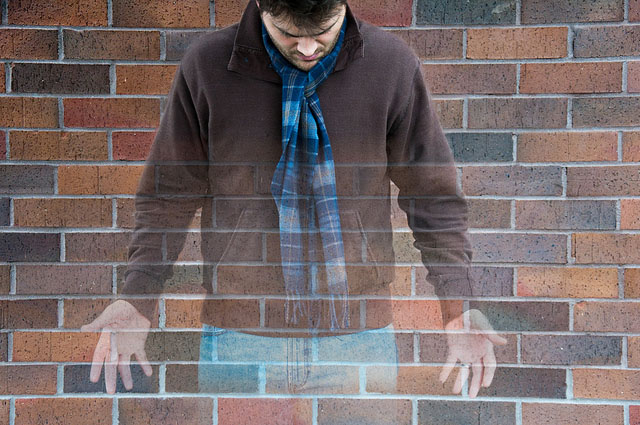You sit down to dinner one night and look out your picture window over your breathtaking view of the city - only to see a disheveled man standing there in your yard, clearly hungry. Faced with this situation we have only two options: feed the man or make him disappear.
This is what human need boils down to - all human need. We can either meet it, or make it go away. There's lots of ways to make it go away - call the police, build a fence, move to the suburbs - even paying someone else to meet the need is sketchy if the need is right in front of you.
I've been trying to wrestle with what Peter Rollins has been talking about for a while. He often uses the expression, "the face of the other," as the location for finding meaning in life. He posits that we only truly find meaning when we give up the search for meaning altogether and see the faces of the people around us.
Maybe I'm getting him wrong or putting words in his mouth, but it seems like Rollins advocates living - that we just need to stop looking inside ourselves or ahead to the future and just be present, looking around.
We've been formed by a consumer society to look for other organizations or institutions to do a job when one needs to be done. We rarely look to ourselves. Few people grow their own food, make their own clothes, or change their own oil. We rely on others because we've been shaped to search our efficiency. When it comes to meeting human need, we look for someone with a track record and experience.
Our approaches to government belie two sides of the same coin - if we free people from encumbrances, they'll be able to meet their own needs (and the need will disappear) vs if we simply make sure everyone has basic needs met before anyone has excess, we won't have to worry about needs (they'll disappear). In both scenarios we're just using the system to prevent ourselves from having to be directly involved. We're searching for ways to shirk our responsibilities to each other.
What if we just fed hungry people? What if we spent time with the lonely or nursed the sick? What if we jut met the needs in front of us?
Thinking about it from a community perspective - what if your community just vowed to meet needs as they arise? What if we gathered together, shared our need, and worked out how it would be met.
Of course those from other places, maybe places they've fled to avoid need, would see our good and wish to contribute. What if we refused? What if we simply invited them to be a part - to engage?
Would we be transformed? Would we get to a place where our priorities were truly shifted from ourselves to the world around us?
My faith tradition would say that such transformation is not possible without the work of the Holy Spirit to change people's lives? While I don't disagree, I wonder if Rollins is just coming at this from a different perspective. Instead of looking at is as a cause-effect relationship (I'll wait to be changed and then evidence the change in my actions), we look at is a continuum (I will act differently and through this process of re-orientation, I will be truly reoriented).
It's much less mechanistic and much more fluid. In fact, it doesn't need overt God-language to describe it or participate in it - which can be scary to church people.
The idea that the story of God is not an introduction to religion but a description of life can be daunting. We like our parameters, our rules, our rituals; they bring comfort and security.
What if comfort and security aren't the most important things in life?

No comments:
Post a Comment